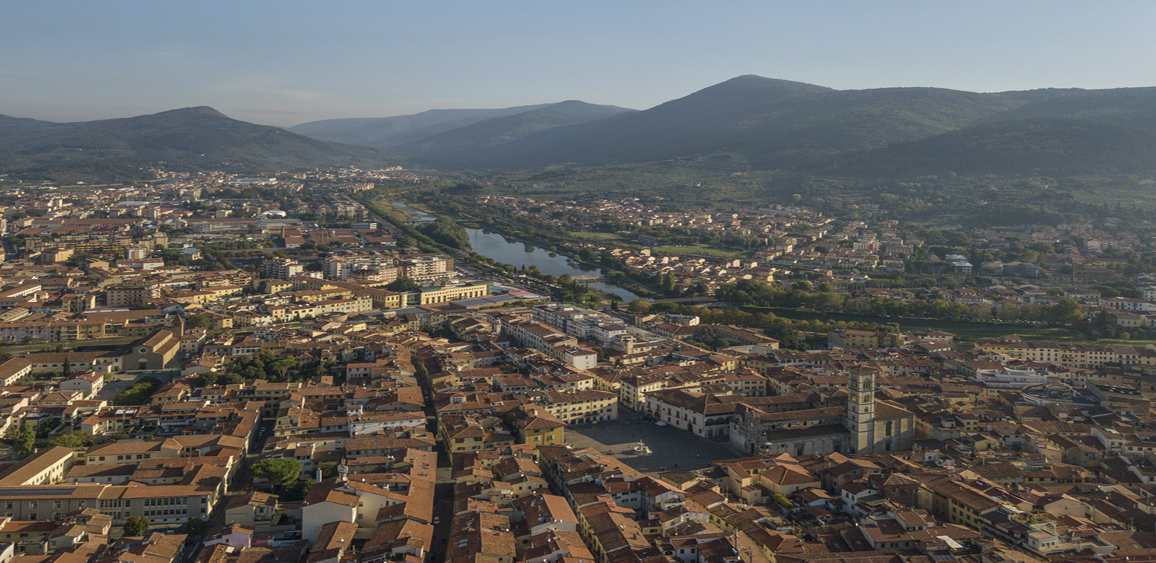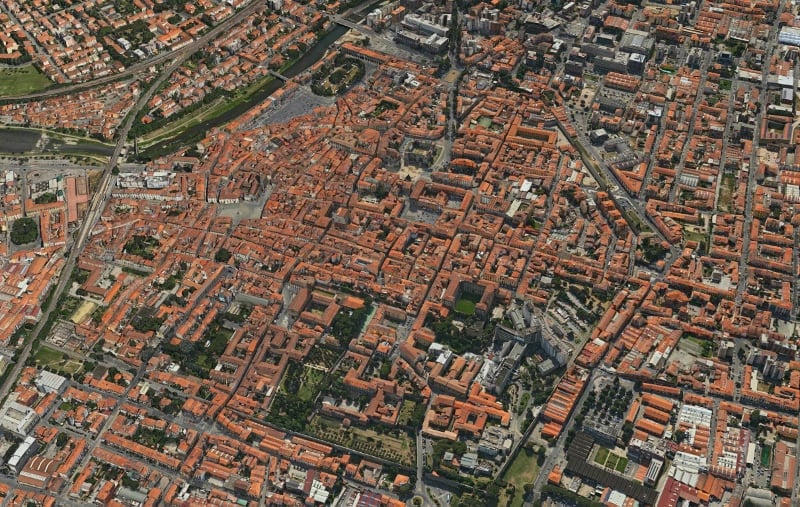



It is located on the same ancient lake that has now disappeared as it is filled with river sediments, where Florence and Pistoia arise: the city of Prato, at the mouth of the Bisenzio Valley, a tributary of the Arno.
The plain of Prato was originally a marshy area and therefore people settled on the edge of this area, precisely on the Cassia Clodia road (a transit road between Prato and Florence).

The city of Prato was formed in the 11th century with the unification of Borgo al Cornio (now Piazza Duomo) and the castle of Pratum dei Conti Alberti (the Alberti were a family of Lombard origin who favored the settlement of merchants in Prato, thus making it a commercial city).
During the twelfth century Prato became a free municipality. Despite the construction of city walls for defense, Prato lost its freedom in 1351 falling into the hands of the Florentines. From this moment the history of Prato is linked to that of Florence.
The city is characterized by a thriving economy, especially in the textile trade. One of the most important traders in Prato was Francesco Datini, a wealthy and very skilled businessman from Prato who invented the bill and the double entry. In the center of Prato there is the Datini palace which owes its name to this merchant.

In 1512 a dramatic event took place in Prato: the city was sacked by the Spaniards who literally halved the population (so-called Sacco di Prato). The city managed to recover only under the Lorraine government, expanding into the textile sector.

In the nineteenth century Prato was characterized by very strong industrialization and enormous population growth; another demographic and economic increase was recorded in the 60s and 70s, with a doubling of the number of residents. Chinese immigration began in the 1990s.

Prato still plays an important role in the world textile industry: Prato's fabrics are sold to the largest Italian and foreign fashion houses.
Prato
Address: Piazza del Comune, 2
Phone: 0574 18361
Site:
http://cittadiprato.it/it/Location inserted by
Luigi de Marchi